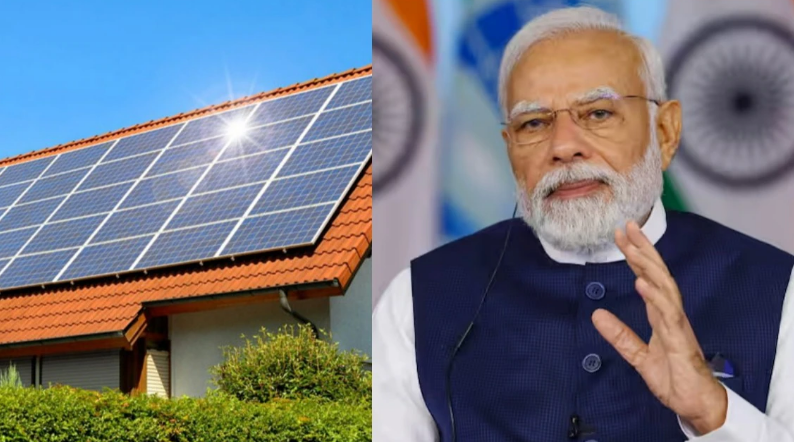Context:
Recently, Union Cabinet approved a ₹75,021-crore package for the “PM-Surya Ghar: Muft Bijli Yojana” (PM Free Electricity scheme) to promote Rooftop Solar (RTS) installations in India.
Key highlights
- The scheme claims to provide 300 units of “free electricity” every month to one crore households.
- Scheme provides a central financial assistance of:
Rs 30,000 subsidy for 1 kW system
Rs 60,000 for 2 kW systems
Rs 78,000 for 3 kW systems or higher - Systems of higher wattage will not be eligible for Central subsidy.
- Households will apply for subsidy through national portal and can select suitable vendor for installing rooftop solar.
- Households can access collateral-free low-interest loan products of around 7% at present for installation.
- Model Solar Village will be developed in each district to act as role model for adoption of rooftop solar in rural areas.
- Status of Solar energy in India
- India currently stands 5th globally in solar power capacity (as per International Renewable Energy Agency – Renewable capacity statistics 2023).
- Share of non-fossil fuel in the total electricity production during the year 2022-23 was 25.44%
Significance of the Scheme
- Households will be able to save electricity bills.
- Households can earn additional income through sale of surplus power to DISCOMs.
- Will result in addition of 30 GW of solar capacity through rooftop solar in the residential sector.
- Guided by the Panchamrit Policy, as announced at COP26, Scheme helps to reach net zero emissions by 2070 and helps to meet fifty percent of its electricity requirements from renewable energy sources by 2030.
- Scheme will create around 17 lakh direct jobs in manufacturing, logistics, supply chain, soles, installation, O&M and other services.
Other initiatives of the Government to promote solar energy
- The Production Linked Incentive Scheme (PLI) for the National Programme on High-Efficiency Solar PV Modules for achieving manufacturing capacity of Giga Watt (GW) scale in High-Efficiency Solar PV modules.
- Solar Park Scheme: Government have sanctioned 50 Solar Parks with aggregate capacity of 37,990 MW in 12 States across the country.
- PM-KUSUM: It aimed to promote the solarizing the agriculture sector by setting up decentralized solar power plants.
- International Solar Alliance (ISA) : It was conceived as a joint effort by India and France to mobilize efforts against climate change through deployment of solar energy solutions.
Recently, Malta became the 119th country to join the International Solar Alliance.

